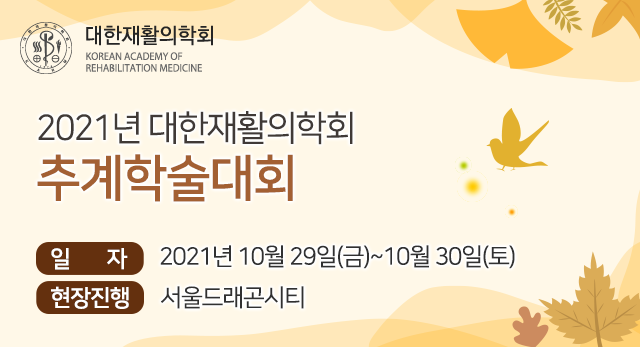| 제목 |
Long-term Effect and Economic Analysis of Intensive Cognitive Rehabilitation in Stroke Patient |
| 소속 |
Samsung Medical Center, Sungkyunkwan University School of Medicine, Department of Physical and Rehabilitation Medicine, Center for Prevention and Rehabilitation, Heart Vascular Stroke Institute1, Yonsei University College of Medicine, Department and Research Institute of Rehabilitation Medicine2, Konkuk University School of Medicine, Department of Rehabilitation Medicine3, Chungnam National University College of Medicine, Department of Rehabilitation Medicine, College of Medicine4, Chonnam National University Medical School, Department of Physical and Rehabilitation Medicine5, Pusan National University School of Medicine, Pusan National University Yangsan Hospital, Department of Rehabilitation Medicine6, Kyungpook National University School of Medicine, Kyungpook National University Hospital, Department of Rehabilitation Medicine7, Wonkwang University School of Medicine, Department of Rehabilitation Medicine8, Jeju National University School of Medicine, Department of Rehabilitation Medicine, Jeju National University Hospital9, Hallym University, Department of Statistics10, Ewha Womans University, Department of Health Convergence11, Wonkwang University School of Medicine, Department of Preventive Medicine12, Korea Disease Control and Prevention Agency, Division of Chronic Disease Prevention13, SAIHST, Sungkyunkwan University, Department of Health Science and Technology, Department of Medical Device Management and Research14 |
| 저자 |
Won Hyuk Chang1*, Seyoung Shin1, Deog Young Kim2, Jongmin Lee3, Min Kyun Sohn4, Min-Keun Song5, Yong-Il Shin6, Yang-Soo Lee7, Min Cheol Joo8, So Young Lee9, Junhee Han10, Jeonghoon Ahn11, Gyung-Jae Oh12, Soo Mi Choi13, Soon-young Seo13, Seon Kui Lee13, Yun-Hee Kim1† |
| 사사 |
This work was supported by the Research Program funded by the Korea Disease Control and Prevention Agency (2019E320202) and the NRF grant provided by the Korean government (NRF-2020R1A2C3010304). |
Objective: The cognitive rehabilitation (CR) has been recommended to improve cognitive impairment of stroke patients, however, there is no consensus on the optimal amount of CR in these patients. In this study, we report long-term effects of the intensive CR during subacute phase of first-ever stroke patients and results of economic analysis.
Materials and Methods: This study is one of the intervention studies of the Korean Stroke Cohort for Functioning and Rehabilitation designed as 10 years long-term follow-up of stroke patients. In 8 hospitals, 150 first-ever stroke patients with cognitive impairment were recruited in this randomized, single-blinded parallel design study. A total of 150 patients were randomly allocated to the intensive cognitive rehabilitation (ICR) group (n=71) and the conventional cognitive rehabilitation (CCR) group (n=79), respectively. All patients received the same amount of comprehensive inpatient stroke rehabilitation except CR during their hospitalization. The ICR group received a CR for 60 minutes on every working day (300 minutes per week) for 4 weeks, and the CCR group received a CR for 90 to 150 minutes per week for the same period. The cognitive function was assessed using the Korean version of Montreal Cognitive Assessment (K-MoCA) by the blinded observer at baseline, post-intervention, 6 and 12 months after stroke onset. Repeated measures ANOVA was used to analyze the group and time interaction. In addition, an economic analysis of ICR was performed in total participants and subgroup.
Results: Figure 1 showed the consort diagram. One hundred two patients, 51 (71.8%) in ICR group and 51 in CCR group (64.6%) completed the intervention and included for ITT analysis. The baseline education level was significantly lower in the ICR group than the CCR group (p<0.05). K-MoCA at post-intervention, 6 and 12 months tended to be higher in the ICR group than the CCR group. There was no significant interaction in K-MoCA between time and group. To exclude the bias of baseline educational level, subgroup analysis was performed according to their education level. The lower educational level was defined as patients not having attained middle school graduation. In patients with lower educational level (24 in the ICR group and 22 in the CCR group), a significantly higher improvement of the K-MoCA were found in the ICR group than CCR group at the post-intervention and 6 months, but not at 12 months after onset. (p<0.05, Fig. 2). The difference in expected cost between ICR and CCR groups was ₩302,033. Health-related utility by ICR increased by an average of 0.129 per year compared to CCR.
Conclusion: The results of this study demonstrated that the ICR provided the dose-dependent effects, especially in subacute stroke patients with lower educational level. In addition, ICR was economical in increasing health-related utility compared to CCR. The CR program should be modified according to the cognitive reserve of stroke patients. |
|
Figure 1. Consort diagram
Figure 2. Change of the Korean version of Montreal Cognitive Assessment in each groups
|









